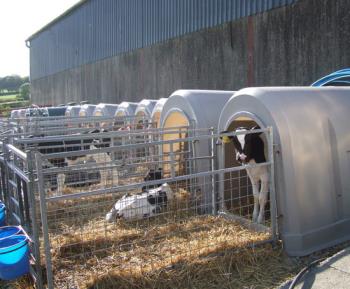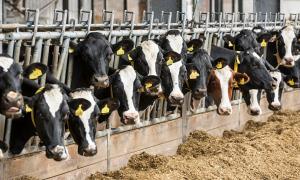|
 The U.S. dairy industry, impacted by declining sales of liquid milk and competition from alternatives is now coming under scrutiny for alleged violation of welfare standards. Having achieved a measure of success in forcing egg producers to transition to alternative housing systems, animal rights advocates have transferred their opposition to milk production. The U.S. dairy industry, impacted by declining sales of liquid milk and competition from alternatives is now coming under scrutiny for alleged violation of welfare standards. Having achieved a measure of success in forcing egg producers to transition to alternative housing systems, animal rights advocates have transferred their opposition to milk production.
As with eggs, pork and beef production there will always be “bad actors” that provide activists with images that are disseminated on the internet. It is axiomatic that management practices that cause pain and stress reflect adversely on performance. In competitive livestock industries achieving genetic potential is critical to both margin and ultimately survival. Accordingly dairy farmers should practice sound stockmanship and provide housing consistent with the needs of their herds.
 Practices which are coming under scrutiny include debudding and castration without anesthesia; rearing in calf crates; artificial insemination; confinement in barns frequently with shackling. The most extreme of animal rights activists consider any form of farming including gathering of eggs or collection of milk as “species exploitation”. Practices which are coming under scrutiny include debudding and castration without anesthesia; rearing in calf crates; artificial insemination; confinement in barns frequently with shackling. The most extreme of animal rights activists consider any form of farming including gathering of eggs or collection of milk as “species exploitation”.
Animal scientists are now evaluating management systems based on the analysis of behavior displayed by dairy cattle and are providing recommendations especially in the area of group housing of calves and abolishing invasive procedures. Given the benefits of improved housing and management, adoption of recommendations by progressive farmers is evident. Current financial realities in addition to innate resistance to changing practices considered standard by generations of farmers are impediments to progress.
The dairy industry would be well served to heed the experience of egg producers since activists influence politicians and consumers. Given the internet, immense funding and media support, the decline in consumption of dairy products based on negative welfare perceptions will continue. Ballot initiatives primary directed against egg production have included housing practices used in both pork and veal production. Restrictive legislation will be a reality except in the most intensive dairy-production states, although a trend towards more concerted opposition is evident.
|